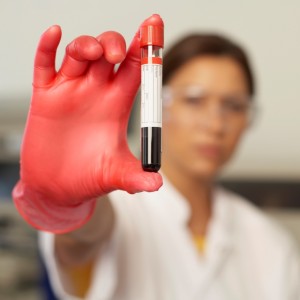How to Read Triglycerides Test Results

People who are suspected to have high cholesterol are often told by medical practitioners to get a Triglyceride Test. Triglycerides are fats that are stored in your body and they help you store energy. You get your triglycerides tested by doing a lipid profile, where you can specifically check for HDL and LDL cholesterol levels along with triglycerides levels. This test does not indicate whether you have any specific medical condition (levels of these elements in the body can be high or low with no specific adverse effects) but they can give an indication of diseases as well as serve as a cautionary tale so you can take healthy elements in your diet and daily regimen.
Instructions
-
1
Note that it is not just your triglyceride levels that matter since you have to assess your diet and lifestyle choices as well. While looking at your triglyceride levels, make sure to note your cholesterol levels as high triglyceride levels mostly go hand in hand with high cholesterol. While both these fats are essential for a healthy body, elevated levels can result in sickness.
-
2
Here is how to assess the numbers on your test: A normal triglyceride level is anything less than 150 mg/dL. A borderline high level is in the range of 150- 199 mg/dL. A high level of triglycerides is from 200 to 499 mg/dL (in this range you are at a high risk for a heart disease). Above 500 mg/dL levels indicate a very high risk for heart diseases.
-
3
If you have high levels of triglyceride levels indicated in your test, make an appointment with your medical practitioner, who will either advise you on further steps you should follow to control these levels, or refer you to a specialist depending upon your condition. While dangerous, high triglyceride levels should not cause panic, as there are holistic and medical treatments available, for many people a simple restructuring of their lifestyle, a healthier diet and exercise can also do the trick.
-
4
It is advised for a person with elevated triglyceride levels to get further medical tests conducted (under the instructions of a physician) to discover the cause of the high levels so that the best route to combating the problem can be taken.






